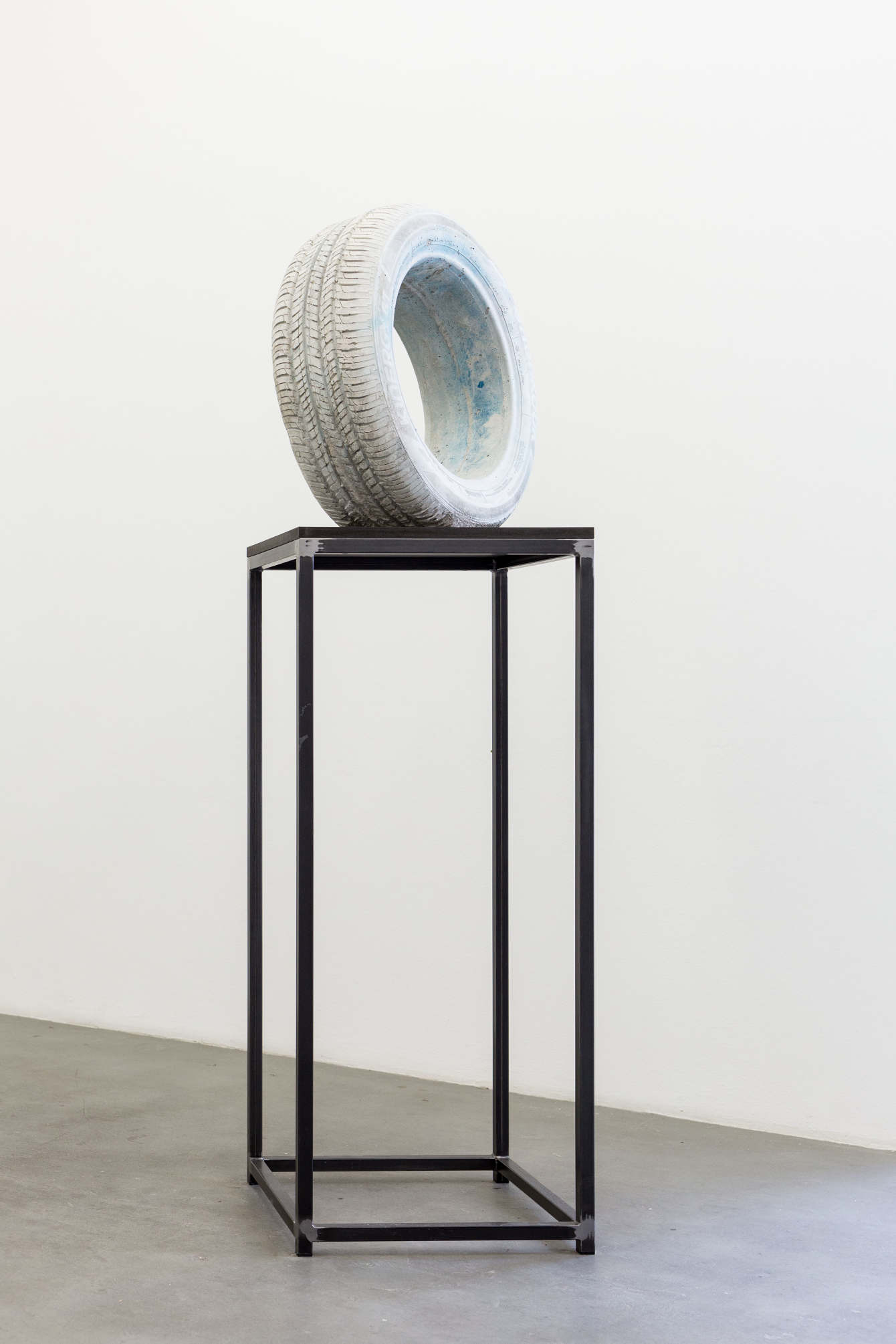
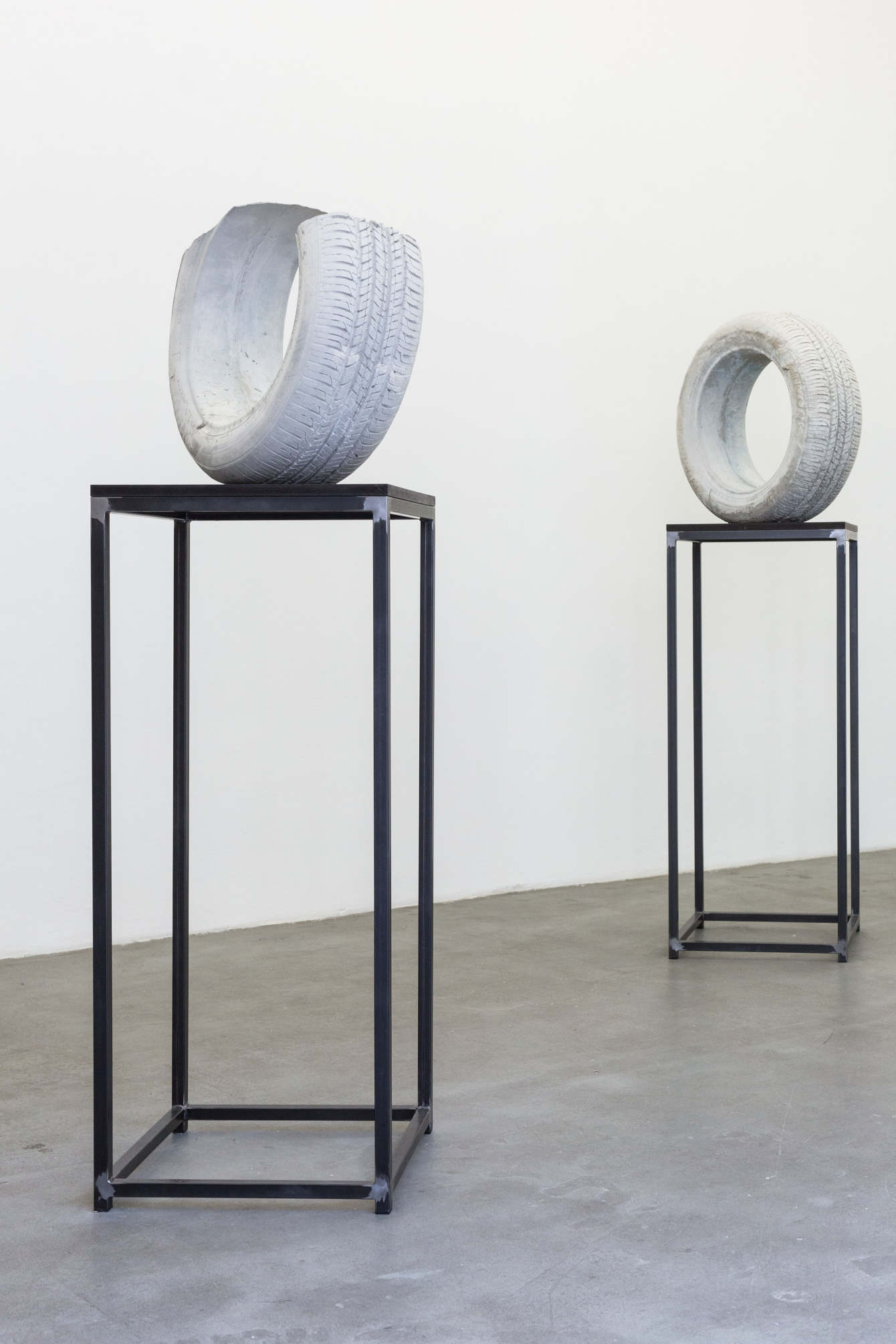
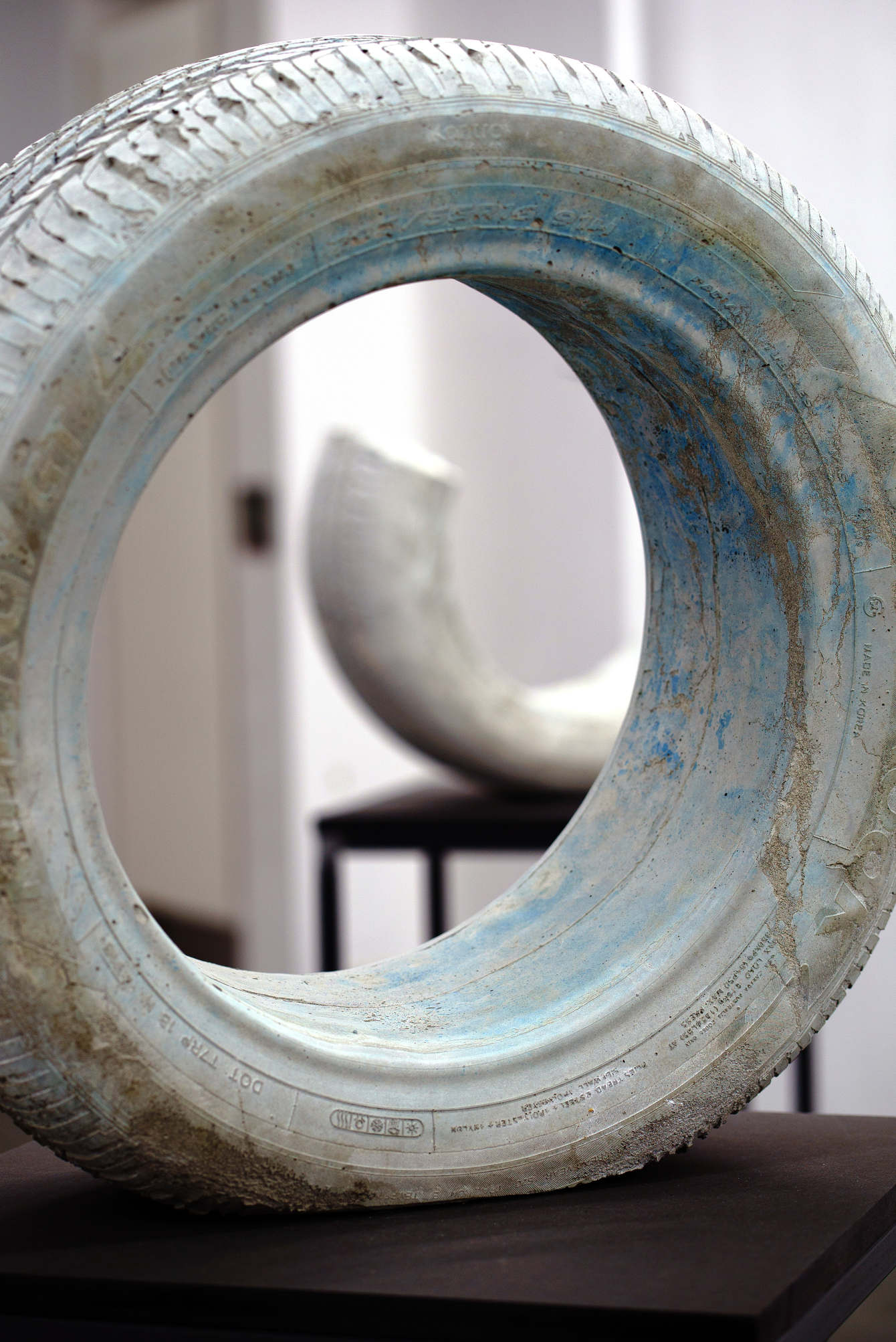
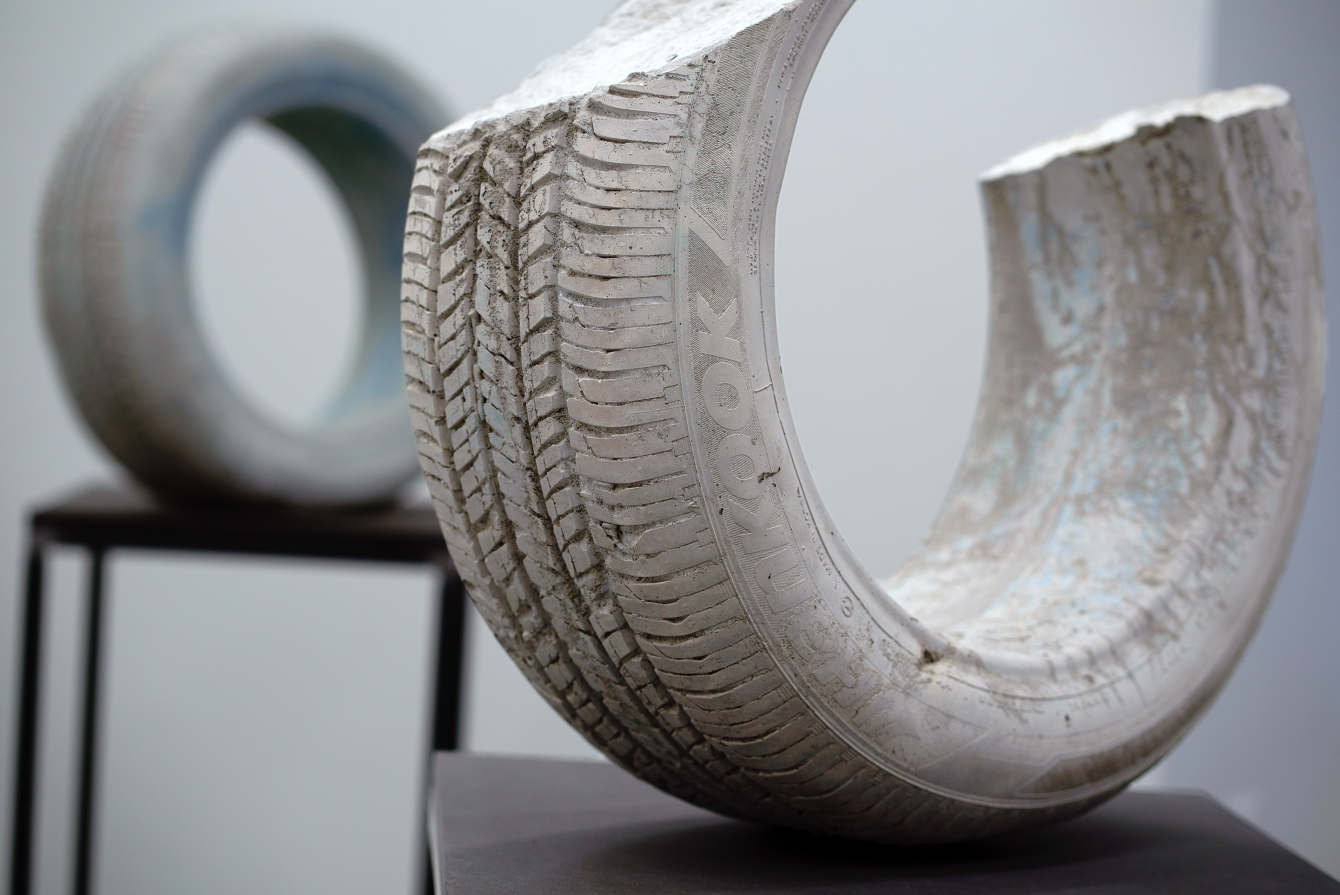
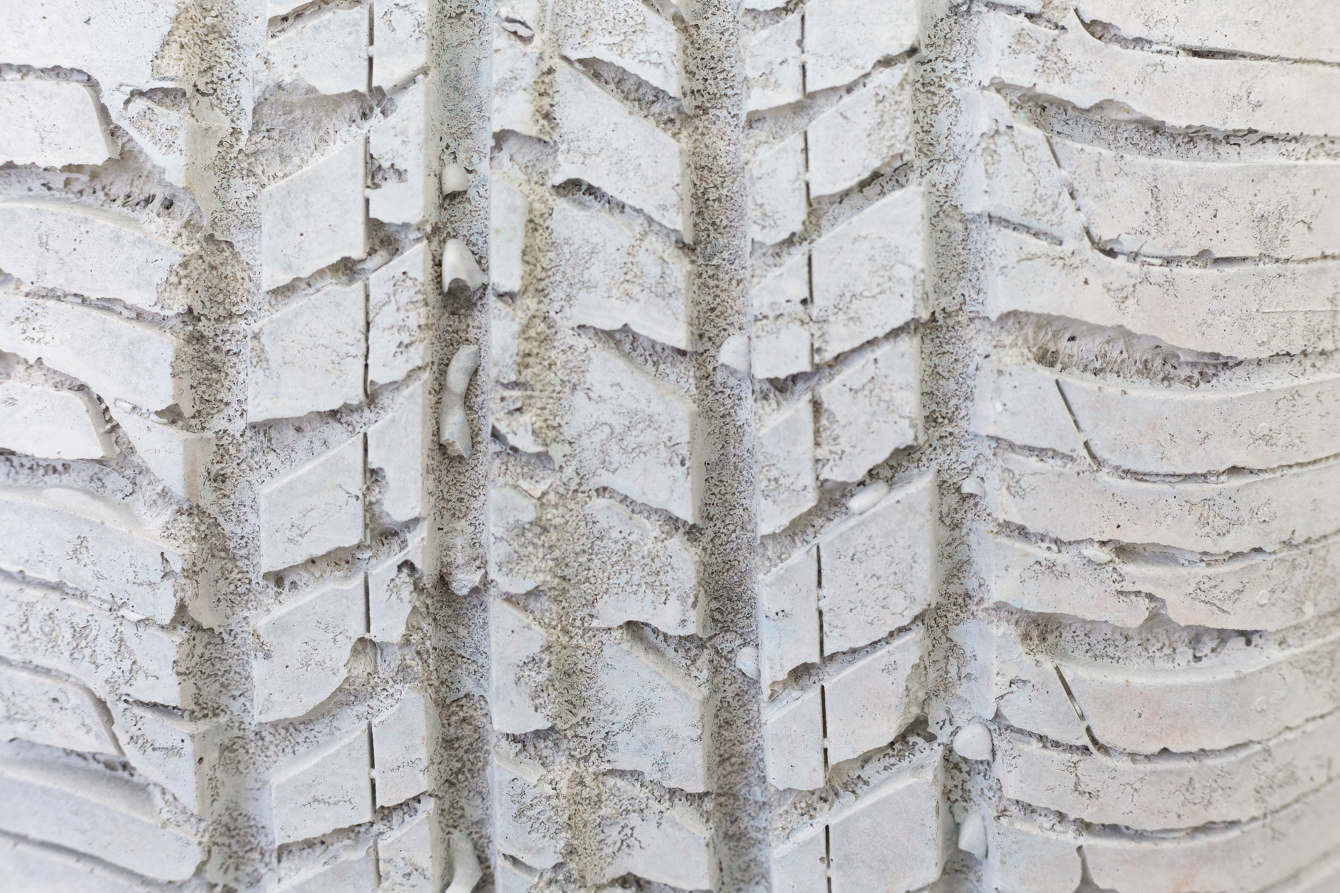
FOREVER RIDE OR DIE, 2018
Materials:
Concrete, pigment and steel
Dimension:
Fabrication:
GeoVanna Gonzalez
Shows:
Diana Lowenstein Gallery, Miami, FL, 2023
NGBK, Berlin, Germany, 2018
Collections:
Miami-Dade County Art in Public Places, 2021
University of Maryland Art Gallery Museum in College Park, Maryland, 2019
Photography by:
Anastasia Muna
Materials:
Concrete, pigment and steel
Dimension:
Fabrication:
GeoVanna Gonzalez
Shows:
Diana Lowenstein Gallery, Miami, FL, 2023
NGBK, Berlin, Germany, 2018
Collections:
Miami-Dade County Art in Public Places, 2021
University of Maryland Art Gallery Museum in College Park, Maryland, 2019
Photography by:
Anastasia Muna
In FOREVER RIDE OR DIE, GeoVanna Gonzalez uses concrete cast tires as powerful symbols of both the physical and metaphorical conditions that shape human existence. The piece addresses the complex intersections of class, race, and social privilege, revealing how these forces, often beyond our control, direct, divert, and sometimes derail our lives. The deteriorating tires stand as dual representations of time’s passage and societal decay—both as everyday objects and as symbolic icons, invoking notions of permanence and decay.
The tires themselves occupy a paradoxical space, straddling the divide between the real and the unreal, the pristine and the used, the decaying and the immortal. They are relics of technology and transportation, symbols of mobility and infrastructure, yet here they are re-cast in concrete—an enduring material—transforming their essence. As objects, they resist becoming something they cannot: they cannot return to their original purpose, nor can they fully transcend their physical limitations. This tension speaks to the commodification of everyday objects and lives, suggesting that we are often defined by the roles we occupy, constrained by systems that shape our identities and experiences.
Each tire is not merely an object but a story. It is both a product of its environment and a reflection of the socio-economic conditions it embodies. Gonzalez uses the tires to confront the viewer with uncomfortable truths about societal hierarchies and the nature of mobility, or lack thereof, and the ways in which we navigate both physical and social landscapes. Through this installation, Gonzalez invites a reconsideration of the objects we pass by, highlighting their stories, their fates, and their often forgotten, yet essential, roles in the framework of a larger, more intricate social structure.
The tires themselves occupy a paradoxical space, straddling the divide between the real and the unreal, the pristine and the used, the decaying and the immortal. They are relics of technology and transportation, symbols of mobility and infrastructure, yet here they are re-cast in concrete—an enduring material—transforming their essence. As objects, they resist becoming something they cannot: they cannot return to their original purpose, nor can they fully transcend their physical limitations. This tension speaks to the commodification of everyday objects and lives, suggesting that we are often defined by the roles we occupy, constrained by systems that shape our identities and experiences.
Each tire is not merely an object but a story. It is both a product of its environment and a reflection of the socio-economic conditions it embodies. Gonzalez uses the tires to confront the viewer with uncomfortable truths about societal hierarchies and the nature of mobility, or lack thereof, and the ways in which we navigate both physical and social landscapes. Through this installation, Gonzalez invites a reconsideration of the objects we pass by, highlighting their stories, their fates, and their often forgotten, yet essential, roles in the framework of a larger, more intricate social structure.